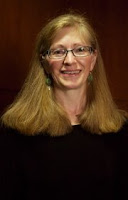 Life and Legacy
Life and LegacyMendelssohn was considered by many to be the greatest musical prodigy following Mozart. After his first performance at the age of 9 and composing twelve symphonies between the ages of 12 and 14, Mendelssohn became one of the most famous musicians of the Romantic period.
A German pianist and composer, Mendelssohn spoke four languages and was skilled in art, literature and philosophy. His symphonies, concerti, oratorios, piano and chamber music has recently been revived in a similar way that Mendelssohn himself revived the music of Johann Sebastian Bach well over a century ago.
Revival of Bach's Music
Following two years of rehearsing, Felix Mendelssohn presented a performance of Bach's St. Matthew Passion in Berlin. With accompaniment provided by an orchestra and choir, Mendelssohn's rendition came exactly one century after Bach's original performance. This was the first time Bach's piece was heard outside of Leipzig, sparking great interest in his music. Bach's revival started in Germany and eventually spread throughout Europe. A concert attendee of St. Matthew Passion concert wrote of "Bach's grand, truly Protestant, robust and erudite genius which we have only recently learnt again to appreciate at its full value."
Following two years of rehearsing, Felix Mendelssohn presented a performance of Bach's St. Matthew Passion in Berlin. With accompaniment provided by an orchestra and choir, Mendelssohn's rendition came exactly one century after Bach's original performance. This was the first time Bach's piece was heard outside of Leipzig, sparking great interest in his music. Bach's revival started in Germany and eventually spread throughout Europe. A concert attendee of St. Matthew Passion concert wrote of "Bach's grand, truly Protestant, robust and erudite genius which we have only recently learnt again to appreciate at its full value."
Information provided by Greg




